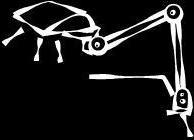Either way, one must choose a belief and form future theories from this ground work. Once this is finished, one may proceed to current day science which is ‘explanation by observation’.
So what are the implications, if any, of either predetermined idea? Idea one says that naturalistic evolution is the most likely cause of the origin of species. Shackled to this theory, however, is the proposal that (1) The Bible has the possibility for error, (2) The ability of deciphering said errors is reliant upon the enlightenment of man and therefore further possible errors may be accepted as truth while they are in reality a farce (The death, burial, and resurrection of Jesus is now only right until proven wrong.) and (3) God does not exist or at least He did not do what He said He did in creating the earth and all it’s inhabitants.
Disregarding future implications, today, proposal (3) is the most important. If one does not accept the existence of God, the Bible calls this one a fool. Regardless of the number of academic achievements, diplomas, recognitions and number of individuals lauding one as the most knowledgeable in the field of biology, this one is in fact not wise but a fool (
Psalm 14:1, Psalm 53:1, Proverbs 15: 7 & 14, Romans 1:18-22). Observation of nature, science, proclaims the presence of God (
Psalm 19:1-6)and one that chooses to disregard this flashing neon sign should not be mistaken for a genius but rightly labeled a fool.
‘I believe in God; I just think that I should have an open mind to the possibility of God allowing evolution to be the venue of choice as an explanation for today’s immense variety of animals,’ one might be saying. Darwin, his contemporaries, and great thinkers in ID alike all find this argument wanting. Darwin was a naturalist; he never would have accepted the idea of an esoteric, metaphysical divine creator. Ask any biology department chair in any number of universities typically regarded with esteem, including some ‘Christian’ schools like Baylor University in Waco Texas. They will have no patience with this argument either. Finally, deists, creationists, Christians and ID proponents alike will too disregard this comment either because of its inconsistency with the Genesis account or because it provides for a creationist but has no use for Him.
I hope this series on the origin of species has sparked some interest for further personal research and has helped us rethink the infant two century theory of Darwinian Evolution. If along the way you would like to discuss a topic please send me a comment.
Let us never become so satisfied with spoon-fed ideologies we forget to consider their origins and count the cost of holding on to them.
Good evening.
 A while back I was riding down the rode with a friend and the subject of deodorant came up (he is a close friend). First I told him what kind I used and then he told me what kind he used. Then he told me that he left his at school [in the gym] the day before and as a substitute, today he used a lot of cologne to cover up the smell.
A while back I was riding down the rode with a friend and the subject of deodorant came up (he is a close friend). First I told him what kind I used and then he told me what kind he used. Then he told me that he left his at school [in the gym] the day before and as a substitute, today he used a lot of cologne to cover up the smell.